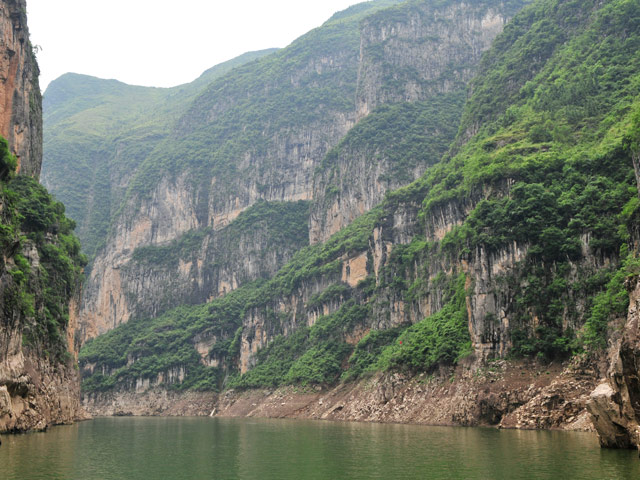Chongqing Weather Guide

-
City Name:Chongqing (Chinese: 重庆, Pinyin:chongqing)
-
Population :Municipality 31,442,300, Metro: 5,087,197
-
Location :located at 29°33′00″N 106°30′25″E
-
Overview:Known as a "Mountain City", Chongqing was originally built on the mountain slopes and along the riversides. It has a long history and numerous scenic spots and historic sites.
Chongqing Climate
Chongqing belongs to sub-tropical monsoon climate. The features are warm winter, hot summer, early spring and short autumn. Annual average temperature is around 19.2°C The average lowest temperature is 6-8°C in winter. The average highest temperature is 27-38°C in summer and the extreme temperature can reach as high as 43.8°C. Hence it had got the name of "furnace city".
Known as one of China$$s "Three Furnaces" (along with Wuhan and Nanjing), Chongqing is unbearably hot during the summer. The surrounding mountains seem to trap the heat. It is pleasant to visit the city in other seasons.
The monsoon concentrates in summer time. The annual average rainfall is 1000-1100mm. There is plenty of night rain in summer, hence the saying "Ba mountains$$ night rain".
Chongqing is also called "foggy city". There is much fog from the end of autumn to early spring with at least 68 foggy days a year. Chongqing is also one of the cities with shortest sunshine time in China. The annual sunshine time is 941.9 hours.
Chongqing Weather Records and Averages
| Month | Avg. High | Avg. Low | Avg. Precip |
|---|---|---|---|
| January | 10.6° C | 5.6° C | 1.78 cm |
| February | 12.2° C | 6.7° C | 2.03 cm |
| March | 17.8° C | 11.1° C | 3.80 cm |
| April | 22.8° C | 15.0° C | 8.89 cm |
| May | 26.7° C | 18.9° C | 15.24 cm |
| June | 29.4° C | 21.7° C | 17.02 cm |
| July | 33.3° C | 24.4° C | 15.24 cm |
| August | 33.9° C | 24.4° C | 12.19 cm |
| September | 27.8° C | 20.6° C | 20.6° C |
| October | 21.7° C | 16.1° C | 9.65 cm |
| November | 16.7° C | 16.7° C | 4.83 cm |
| December | 12.2° C | 7.2° C | 2.03 cm |
Chongqing weather forecast
The Dazu Grottoes are made up of more than forty sites of stone carvings with over 50,000 statues of Buddha. The Grottoes were completed during the Tang and Song Dynasties.
The Yangtze River, originating on the Qinghai-Tibetan Plateau, flows through seven provinces, an autonomous region and a municipality before it enters the East China Sea.
Lesser Three Gorges is situated along the Daning River, one of the main tributaries of Yangtze River, with a total length of about 250 kilometers (155 miles).





